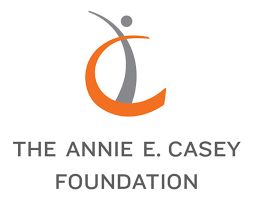News: Health & Wellbeing

Elections are an Opportunity for Young People and for the People Who Care About Them
November 5, 2024National Scientific Council on Adolescence member Stephen Russell tackles how to support young people during elections in a new article published by UT Austin. Russell offers a number of things that adults in young people’s lives can do to help them overcome strong emotions during these significant and sometimes uncertain events.
Press Releases
February 25, 2025: Announcing the UCLA Center for the Developing Adolescent’s 2024 Annual Report
January 17, 2023: New Guides Help Organizations Build Effective Youth Engagement Programs
August 16, 2021: New Report Examines Intersection of Anti-Black Racism on Youth Development
November 30, 2020: Center for the Developing Adolescent Announces New Advisory Board Members
October 1, 2020: Center for the Developing Adolescent Announces New Leadership
Stay in the Know

Are Parents Giving Their Kids Too Many Mental Health Days?
October 21, 2024“It’s not that we want to dampen strong emotions, we want to support adolescents’ ability to work with those emotions to think about what they mean and how to regulate them and put them to good uses,” said Co-Executive Director Andrew Fuligni in a new Education Week article discussing whether or not parents are allowing their kids too many days out of school due to mental health.

Teen Girls’ Brains Aged Rapidly During Pandemic, Study Finds
September 10, 2024A new study suggests that adolescent brains may have matured more rapidly during the pandemic. Ron Dahl, founding director of CDA and host of the CDA’s Adaptivity podcast, spoke with New York Times reporter Ellen Barry about why we shouldn’t jump to negative conclusions about what these changes mean.

Don’t Just Blame Social Media for Kids’ Poor Mental Health—Blame a Lack of Sleep
September 9, 2024“The evidence for sleep and mental health is much stronger than the evidence for social media and mental health,” said our Co-Executive Director Andrew Fuligni in a recent briefing for reporters about youth mental health.

Is ‘Crisis’ Thinking About Youth Mental Health Doing More Harm Than Good?
September 9, 2024At a recent media briefing, FrameWorks CEO Nat Kendall-Taylor explained how crisis framing hinders solutions that could support youth mental health. Our Co-Executive Director Andrew Fuligni reviewed what research tells us about those solutions, and how we can help young people thrive.

A Sense of Purpose Can Support Teen Mental Health
April 4, 2024Researchers Patrick Hill and NSCA member Anthony Burrow, co-authors of the NSCA’s recent report on purpose in adolescence, explain why a sense of purpose is important to youth mental health and how adults can help young people cultivate their purpose.

The Great Rewiring: Is Social Media Really Behind an Epidemic of Teenage Mental Illness?
March 29, 2024In a book review for Nature, NSCA member Candice Odgers explains what research actually says about social media and youth mental health—and how current narratives may be causing us to miss the real challenges facing young people today.

The Impact of Sleep on Your Teen’s Mental Health
February 9, 2024A new article from CNET explaining the importance of sleep for young people cites our summary of the science of adolescent sleep.

Adolescents who have a sense of purpose are happier and healthier. How can we help?
November 2, 2023Helping young people develop a sense of purpose in life could build their resilience and prevent declines in mental health. A new report from the National Scientific Council on Adolescence (NSCA) outlines why a having sense of purpose is a key aspect of healthy adolescent development and describes what adults can do to help.

The Stages of Adolescent Brain Development With UCLA’s Adriana Galván, PhD
October 24, 2023In this presentation for the Annie E. Casey Foundation, our Co-executive Director Adriana Galván presents insights into adolescent brain development and shows how better understanding this developmental period can inform and improve programs and services focused on youth well-being.
